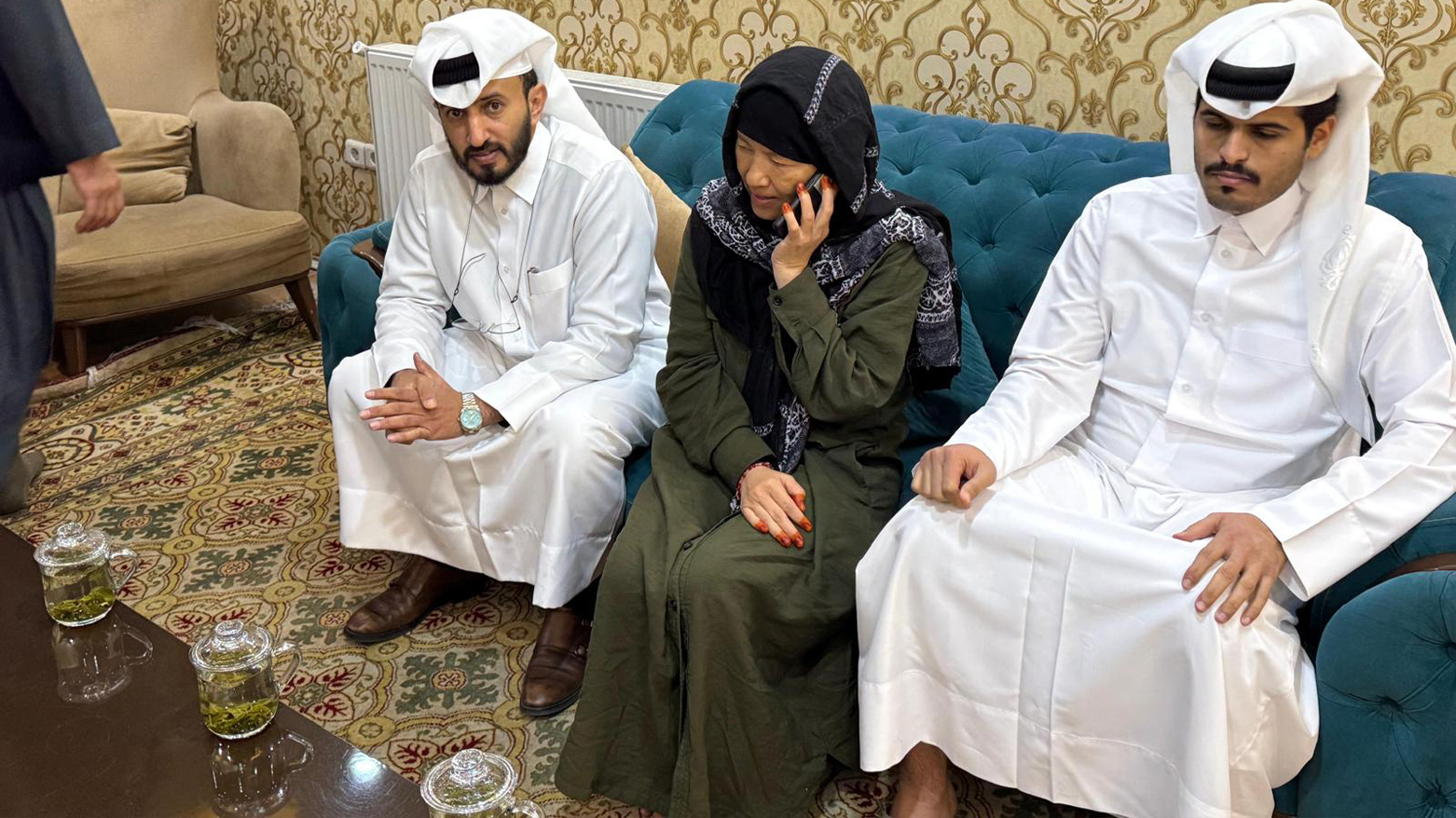Taliban Releases American Woman in Sign of Shifting U.S. Relations
Her release was made possible through mediation by Qatari officials, according to multiple sources cited by the Associated Press.

By Kamaran Aziz
ERBIL (Kurdistan24) — An American woman detained by the Taliban in Afghanistan for allegedly operating a drone without authorization has been released after weeks in custody, in a development that underscores the delicate and often opaque diplomatic balancing act between the Taliban and the international community.
Her release was made possible through mediation by Qatari officials, according to multiple sources cited by the Associated Press.
The woman, identified as Faye Dail Hall, was arrested in February for using an unmanned aerial vehicle in violation of Taliban regulations. Although the specifics of her case and her reasons for being in Afghanistan remain undisclosed, her detention sparked quiet negotiations led by Qatar—a country that has become a key interlocutor in Taliban-Western relations.
According to a source who spoke on condition of anonymity, Hall was transferred to the Qatari embassy in Kabul following her release, where she was reported to be in good health. Arrangements are currently underway for her return to the United States.
Former U.S. envoy to Afghanistan Zalmay Khalilzad confirmed the news on the social media platform X, sharing an image and stating that Hall is now under the care of Qatari partners in Kabul. “She will soon be returning home,” Khalilzad wrote, applauding the diplomatic effort.
Hall is now the fourth American to be released from Taliban custody since early 2023. Earlier this month, George Glezmann, an airline mechanic from Atlanta, was freed after spending more than two years in captivity. That release, like Hall’s, was facilitated by Qatari mediators. Last year, Qatar also brokered the release of Ryan Corbett and William McKenty in what was widely seen as a symbolic gesture amid strained U.S.-Taliban relations.
While the U.S. State Department has not yet issued a formal comment on Hall’s case, officials in Kabul say the broader diplomatic context is slowly evolving.
According to reports, Washington lifted bounties on three senior Taliban figures last Sunday, including the interior minister Sirajuddin Haqqani, who also heads the Haqqani network—long designated by the U.S. as a terrorist organization.
Haqqani, notorious for orchestrating the 2008 attack on Kabul’s Serena Hotel that killed six people, including U.S. citizen Thor David Hesla, no longer appears on the State Department’s Rewards for Justice website. The FBI, however, continues to list him as a wanted figure. The other two individuals reportedly delisted are Abdul Aziz Haqqani and Yahya Haqqani.
“These three individuals are two brothers and one paternal cousin,” Interior Ministry spokesman Abdul Mateen Qani told the Associated Press, noting the significance of the gesture by the U.S. government.
The Taliban sees these developments as part of a shift in tone from Washington. A senior Afghan Foreign Ministry official, Zakir Jalaly, described the twin developments—the release of detainees and the removal of the bounties—as indicative of both sides “moving beyond the effects of the wartime phase and taking constructive steps to pave the way for progress” in bilateral relations.
Still, the Taliban remains diplomatically isolated and unrecognized as the official government of Afghanistan by most of the world. But with Qatar continuing to mediate quietly and effectively, humanitarian issues, prisoner releases, and diplomatic overtures are becoming more frequent, if still fraught with complexity.
Hall’s release adds to a small but growing number of signals suggesting that pragmatic engagement is shaping the contours of Taliban-Western interaction, even as political recognition remains off the table.
As Faye Dail Hall prepares to return home, her case remains a potent reminder of the geopolitical undercurrents now defining post-withdrawal Afghanistan—a country still navigating the line between its past isolation and a cautiously emerging international role.